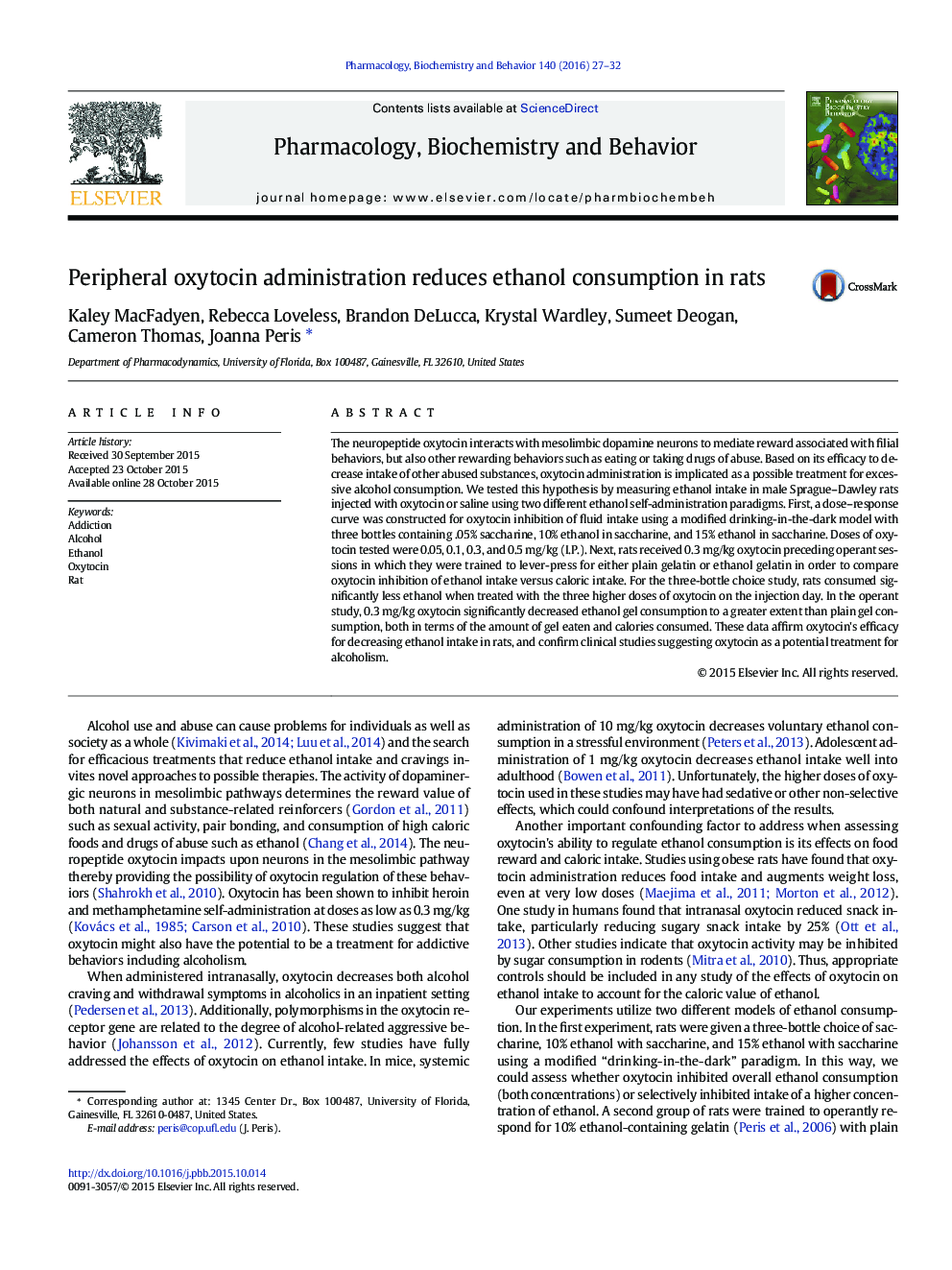| کد مقاله | کد نشریه | سال انتشار | مقاله انگلیسی | نسخه تمام متن |
|---|---|---|---|---|
| 2012677 | 1541845 | 2016 | 6 صفحه PDF | دانلود رایگان |
The neuropeptide oxytocin interacts with mesolimbic dopamine neurons to mediate reward associated with filial behaviors, but also other rewarding behaviors such as eating or taking drugs of abuse. Based on its efficacy to decrease intake of other abused substances, oxytocin administration is implicated as a possible treatment for excessive alcohol consumption. We tested this hypothesis by measuring ethanol intake in male Sprague–Dawley rats injected with oxytocin or saline using two different ethanol self-administration paradigms. First, a dose–response curve was constructed for oxytocin inhibition of fluid intake using a modified drinking-in-the-dark model with three bottles containing .05% saccharine, 10% ethanol in saccharine, and 15% ethanol in saccharine. Doses of oxytocin tested were 0.05, 0.1, 0.3, and 0.5 mg/kg (I.P.). Next, rats received 0.3 mg/kg oxytocin preceding operant sessions in which they were trained to lever-press for either plain gelatin or ethanol gelatin in order to compare oxytocin inhibition of ethanol intake versus caloric intake. For the three-bottle choice study, rats consumed significantly less ethanol when treated with the three higher doses of oxytocin on the injection day. In the operant study, 0.3 mg/kg oxytocin significantly decreased ethanol gel consumption to a greater extent than plain gel consumption, both in terms of the amount of gel eaten and calories consumed. These data affirm oxytocin's efficacy for decreasing ethanol intake in rats, and confirm clinical studies suggesting oxytocin as a potential treatment for alcoholism.
Journal: Pharmacology Biochemistry and Behavior - Volume 140, January 2016, Pages 27–32
